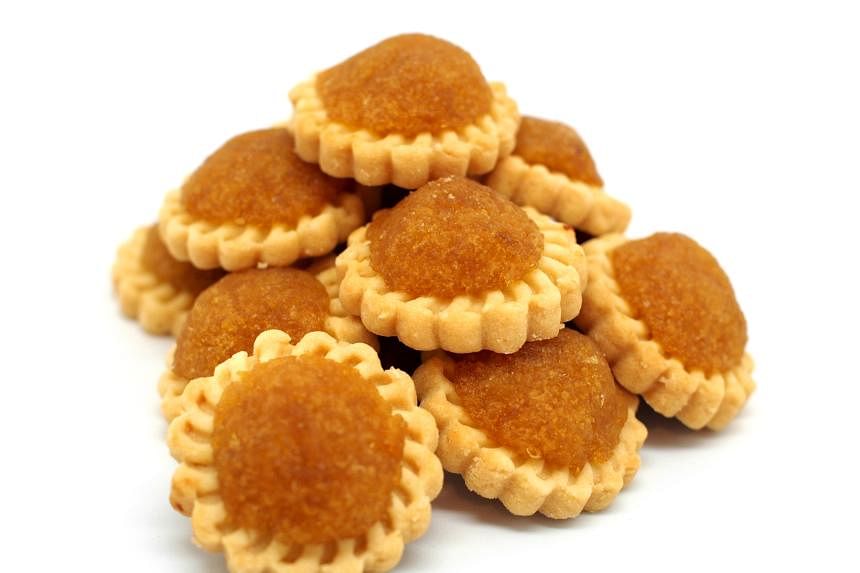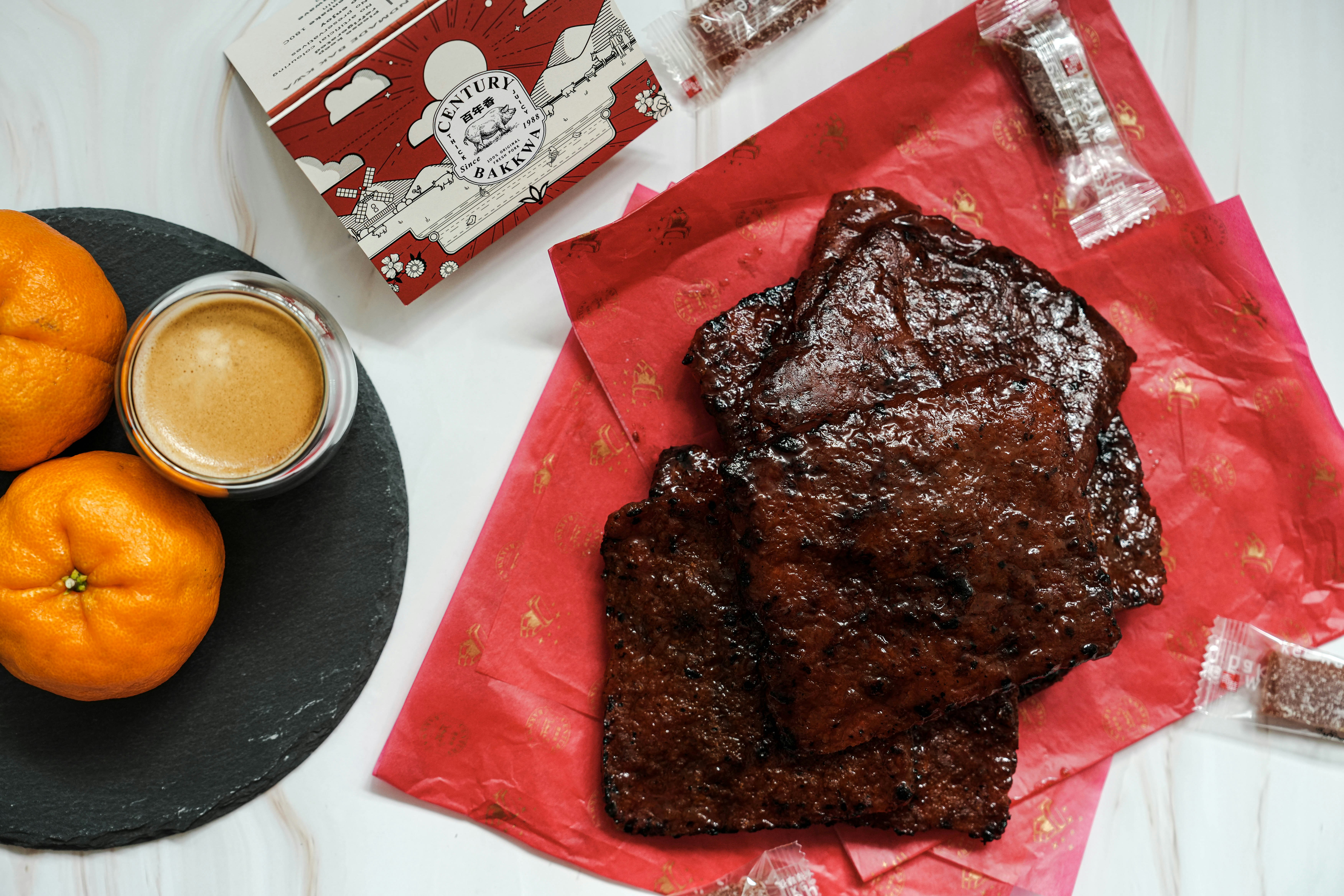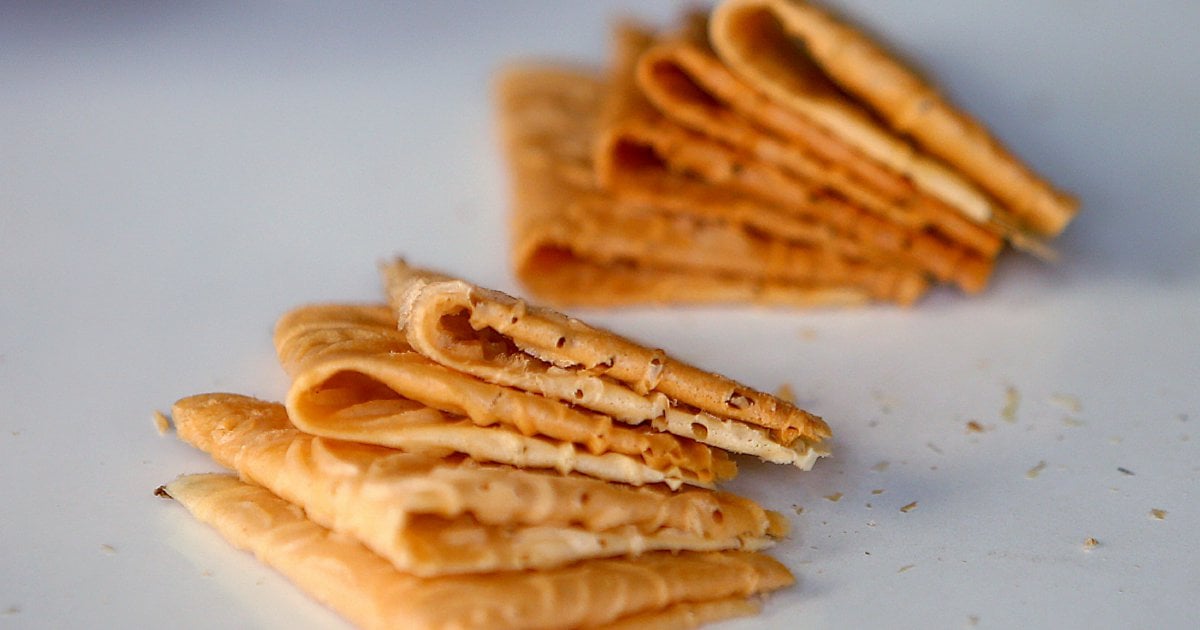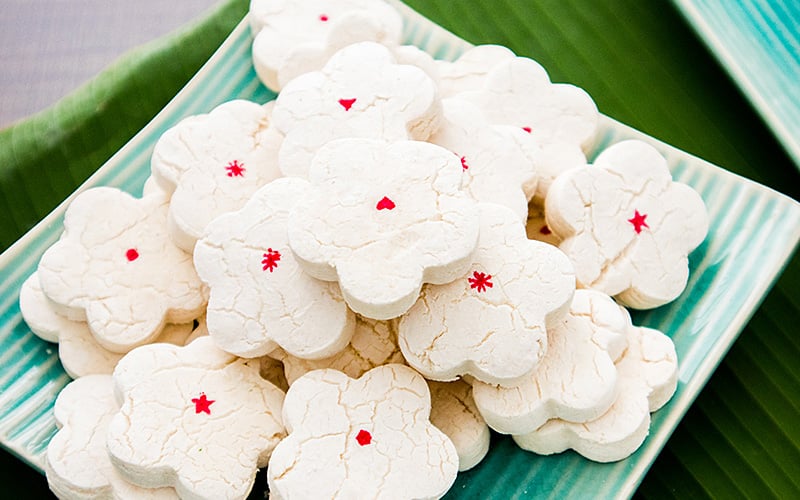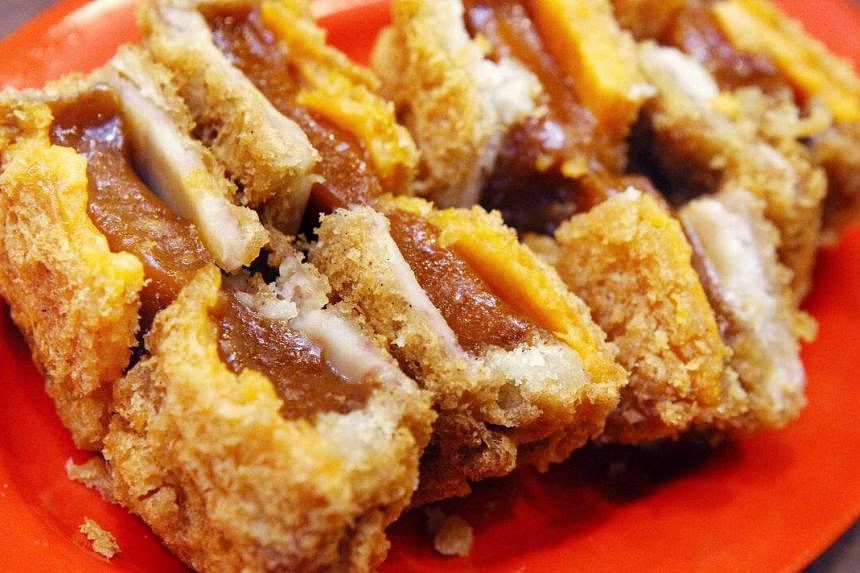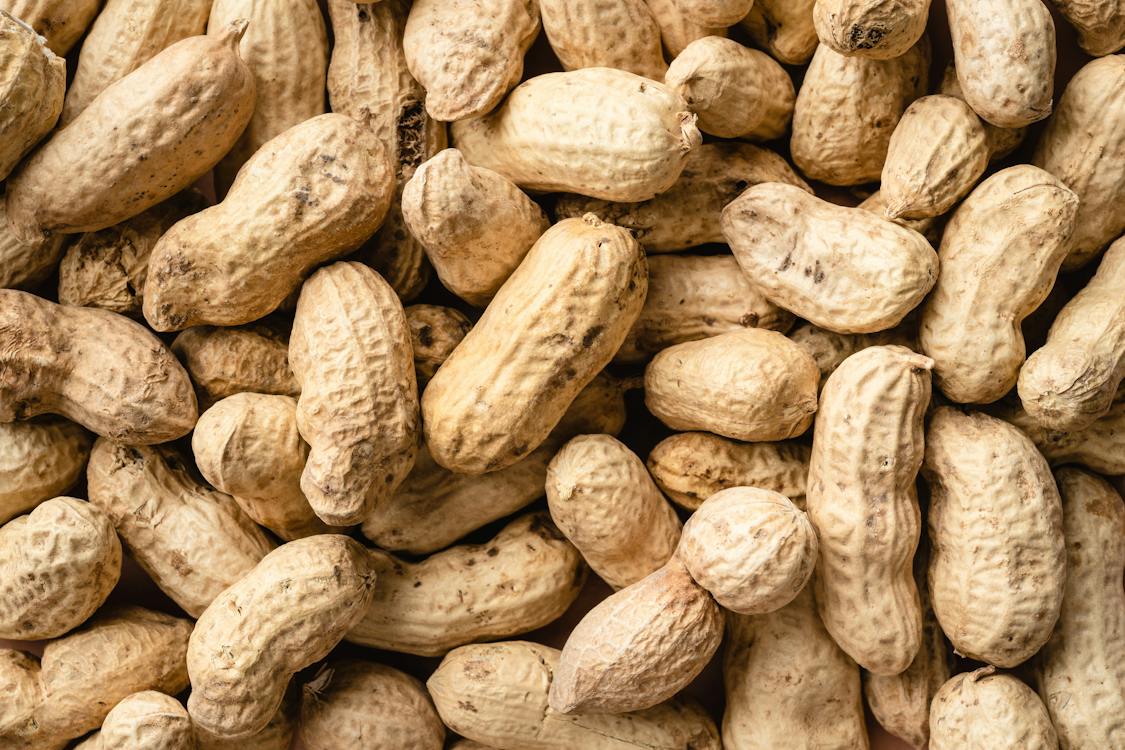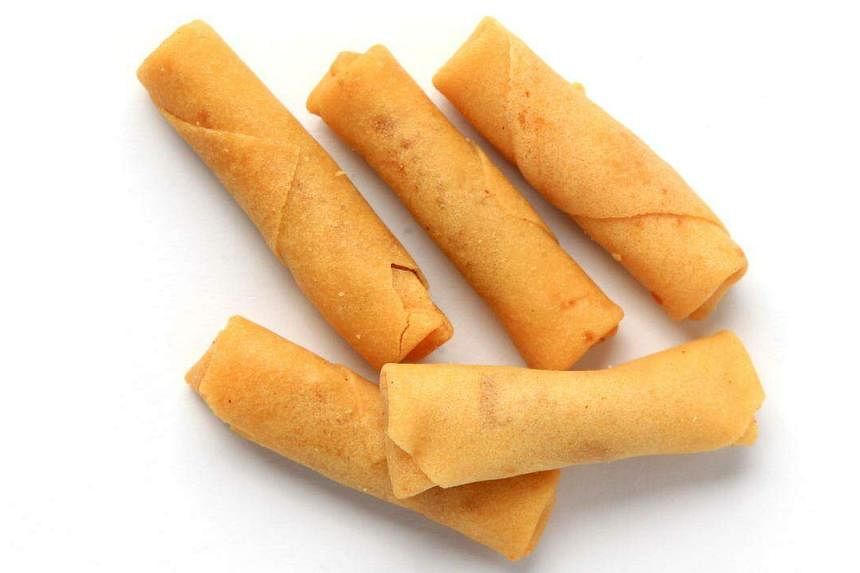 Makan
Makan8 Chinese New Year Snacks & Their Meanings If You've Ever Wondered Why You're Eating Them
A little tidbit about these CNY tidbits.
1. Pineapple tarts
When you think of Chinese New Year, the first snack that comes to mind is pineapple tarts.
The Hokkien pronunciation of pineapple is ong lai, which sounds like "the coming of fortune." This pastry is often thought to bring prosperity and luck to those who consume them. That's why it is such a common staple during the festive season.
Image via Lianhe Zaobao/The Straits Times
2. Bak kwa
Image via Bytes for Food/Unsplash
Bak kwa is synonymous with Chinese New Year. Families flock to bak kwa stores and stand in long queues for these succulent barbecued meats.
This Hokkien treat originated from the province of Fujian in China. In olden times, meat was considered a luxury and many families could not afford to enjoy it on a daily basis. So, when they did purchase meat, they would preserve it in order to slowly enjoy it for as long as possible. During special occasions such as the celebration of the New Year, they would share pieces of preserved meats with friends and family.
As time passed, the tradition has changed slightly. Today, businesses grill these smokey pork jerky, while people buy these savoury delicacies as gifts for their loved ones.
3. Love letters
These thin, crispy rolls are called "love letters" because of the way these biscuits fold, resembling the folding of a letter.
Also known as kuih kapit, these thin biscuits have a romantic legend behind them. Lovers who were unable to communicate easily with each other would pass romantic messages via these biscuits. Any evidence would be destroyed by simply consuming them.
Sharing love letters during Chinese New Year expresses warmth and affection.
Image via Faiz Anuar/New Straits Times
4. Kuih bangkit
These coconut-flavoured cookies are often shaped like coins resembling money as a form of altar offering to ancestors.
Kuih bangkit gets its name from its ability to rise and double in size when baking. These flaky cookies' name literally translates to "rising cookies", which symbolises a rise in fortunes.
Image via FMT
5. Nian gao
Eating these sticky rice cakes is especially popular during Chinese New Year because it signifies the promise of a better year, growth, and progress.
In Mandarin, the word nian translates to "year", while gao sounds like "high" or "growth." There is even a lucky saying when consuming nian gao, which goes "niánnián gāo" that means "getting higher every year on". This can imply a rise in someone's business, children's studies, and other aspects in life.
Image via Lianhe Zaobao/The Straits Times
6. Peanuts
In Chinese culture, peanuts are an auspicious symbol that represents longevity. This is why there are many variations of peanut snacks like peanut cookies, peanut candy, and more.
Peanuts in Mandarin is "花生" (hua sheng). The word 'sheng' means to give birth and people have since associated peanut cookies with the birth of — you guessed it, prosperity and wealth. It sounds like the phrase "to give birth to many children," emphasising the wish for a long and fruitful life.
You'll often see plates full of peanuts during open houses in Chinese households, as it is believed to generate luck in the areas of health and longevity.
Image via Marina Leonova/Pexels
7. Tray of Togetherness
Another Chinese New Year open house staple is a tray of nuts and seeds. Seeds, in general, symbolise fertility and the beginning of new life. That's because seeds is gua zi (瓜子) in Mandarin, and the word zi (子) is the same word used for "son".
Munching on seeds during Chinese New Year generally represents the hope for a fruitful and prosperous year.
Meanwhile, an assortment of nuts and dried fruits can also be found on the tray, such as:
– Pistachios: Represent happiness, as the nuts themselves look like they're smiling.
– Peanuts: Represent longevity and prosperity.
– Cashew nuts: Resembles gold ingots which were the ancient currency used in China. Thus, they are eaten during Chinese New Year in hopes of bringing wealth.
– Dried fruits: Associated with sweetness and the hope for a sweet and joyful life in the coming year.
Image via Nuts and Snacks SG
8. Shrimp rolls
In Chinese culture, shrimp is thought to represent happiness and good fortune. Savoury dried shrimps are rolled in wrappers and deep fried into crispy golden-brown rolls that resemble gold bars — symbolising wealth.
Image via Lianhe Zaobao/The Straits Times

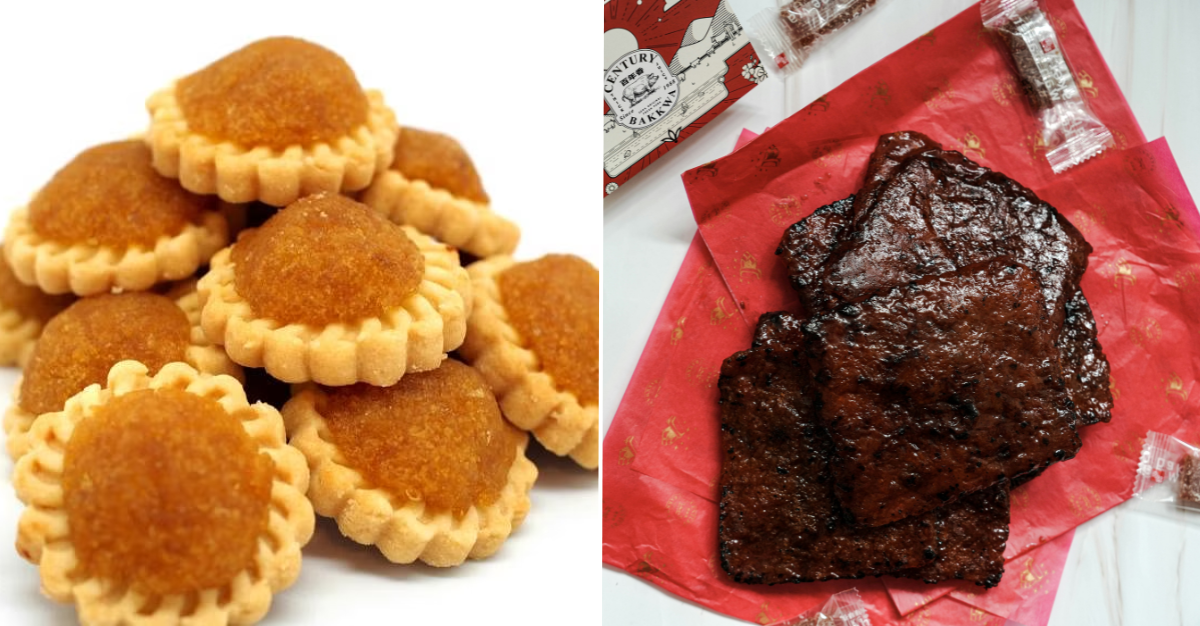 Cover image via
Cover image via 